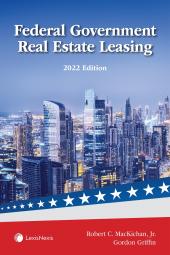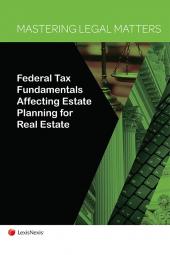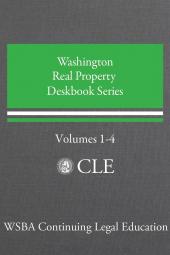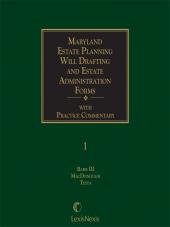We are in the process of migrating the LexisNexis Store. During this transition, some customers may not be able to access their Download Center or new electronic orders. Please call Customer Service 1-800-833-9844 or Chat With A Support Representative <https://supportcenter.lexisnexis.com/app/chat/store_chat/>
Federal Government Real Estate Leasing
Select a format
 International Order Inquiry
International Order Inquiry
Select subscription type
Terms & conditions
Subscribers receive the product(s) listed on the Order Form and any Updates made available during the annual subscription period. Shipping and handling fees are not included in the annual price.
Subscribers are advised of the number of Updates that were made to the particular publication the prior year. The number of Updates may vary due to developments in the law and other publishing issues, but subscribers may use this as a rough estimate of future shipments. Subscribers may call Customer Support at 800-833-9844 for additional information.
Subscribers may cancel this subscription by: calling Customer Support at 800-833-9844; emailing customer.support@lexisnexis.com; or returning the invoice marked "CANCEL".
If subscribers cancel within 30 days after the product is ordered or received and return the product at their expense, then they will receive a full credit of the price for the annual subscription.
If subscribers cancel between 31 and 60 days after the invoice date and return the product at their expense, then they will receive a 5/6th credit of the price for the annual subscription. No credit will be given for cancellations more than 60 days after the invoice date. To receive any credit, subscriber must return all product(s) shipped during the year at their expense within the applicable cancellation period listed above.
The total price includes the product(s) listed in the Order Form and any Updates for a limited period (minimum period of 30 days) after the order is placed ("Order Window"). Shipping and handling fees are not included in the grand total price.
All shipments may be returned, at subscribers' expense, for full credit of the Price within 30 days of receipt.
Shipments may not be returned, and no credits will be issued, more than 30 days after receipt.
After the Order Window, subscribers will receive notice of Updates along with the then-current grand total price and order process as Updates become available. Subscribers will only be shipped those Updates they specifically request.
Product description
View a sample of this title using the ReadNow feature
Federal Government Real Estate Leasing is the practical guide you need for federal government real estate lease formation and performance. Whether you are already experienced in federal government leasing or you are a commercial real estate landlord looking to break into the government space, this guide will provide you with the most important rules of the road, as well as practical pointers in navigating the oftentimes confusing world of federal leasing.
- Federal Government Real Estate Leasing includes analysis of recent developments on government lease administration, new rules and templates, and discussions of some of the more important U.S. Court of Federal Claims decisions addressing federal leasing
- government leasing policy, the rules of the road for contracting with the federal government, and lease elements
- common lease administration issues
- federal leasebacks
The federal government is the largest single lessee of space in the United States and federal government tenants are backed by the full faith and credit of the U.S. government. But leasing to the federal government is not without its risks and complications. Federal government leases are government contracts, and the federal government attaches a number of requirements and conditions through the contracting process. Commercial landlords may be unfamiliar with a number of these government-specific requirements. Similarly, the government has its own processes for awarding leases, resolving disputes during the term of the lease and addressing the sale of an asset with a government lease that will likely be foreign to commercial real estate practitioners.
Austerity measures adopted by the government in an attempt to rein in costs have led to a smaller universe of government leases. This, in turn, has led to increased competition for a piece of the shrinking government leasing business. In this atmosphere of increased competition, contracting officers have become more sophisticated and discerning in their procurement decisions. How, then, should landlords approach government leasing in this environment of heightened scrutiny and competition?
This guide is a primer for those new to government leasing, as well as a resource for more experienced federal real estate practitioners, government contracting officers, and leasing specialists.
Federal Government Real Estate Leasing is written by experts in the field Robert C. MacKichan Jr. , a partner in Holland & Knight's Washington, D.C., office and the leader of the firm's GSA Leasing and Federal Real Estate Team, and Gordon N. Griffin, an attorney also at Holland & Knight's Washington, D.C., office, who advises federal real estate clients on U.S. government procurement practices and lease disputes under the Contract Disputes Act.
The 2021 edition ISBN is 9781663324856.
eBooks, CDs, downloadable content, and software purchases are noncancelable, nonrefundable and nonreturnable. Click here for more information about LexisNexis eBooks. The eBook versions of this title may feature links to Lexis+® for further legal research options. A valid subscription to Lexis+® is required to access this content.
Table of contents
Dedication
About the Authors
Abbreviations
Introduction
CHAPTER 1, Government's Authority to Lease
§ 1.01 Acquiring a Leasehold Interest in Real Property
CHAPTER 2, Government Leasing Policy
§ 2.01 The Competitive Requirement
§ 2.02 Government Contractor Status
§ 2.03 Contractor Reporting Requirements
§ 2.04 Government Brokerage Services
CHAPTER 3, Acquiring Leasehold Interests in Real Estate
§ 3.01 Defining Agency Requirements
§ 3.02 Defining & Limiting the Scope of Competition
§ 3.03 Issuance of the Solicitation (Request for Lease Proposals)
§ 3.04 The Competitive Process
§ 3.05 Challenging Terms of Solicitations, Exclusion from Competition & Unsuccessful Offers
CHAPTER 4, The General Services Administration (GSA) Lease
§ 4.01 Standard Government Lease vs. Private Sector
§ 4.02 Global Lease Provisions
§ 4.03 General Clauses
§ 4.04 Representations & Certifications
§ 4.05 Lessor's Cost Statement
CHAPTER 5. Federal Lease Administration
§ 5.01 Changes
§ 5.02 Change of Lessor
§ 5.03 Disputes
CHAPTER 6, Government Holdovers
§ 6.01 Introduction to the Government Holdover
§ 6.02 Government's Duty to Vacate
§ 6.03 Holdover Provisions
§ 6.04 Recovery or Fair Market Rental Value & Consequential Damages
§ 6.05 Condemnation
§ 6.06 Issues to Consider in the Event of a Holdover
CHAPTER 7, Enhanced Use Leases/Leasebacks
§ 7.01 Background
§ 7.02 Statutory Authority
§ 7.03 Common Issue—DOD Terminations for Convenience
CHAPTER 8. Alternative Approaches to Satisfy Government Space Requirements
§ 8.01 Alternative Approaches
§ 8.02 Outleasing & Historic Properties
§ 8.03 Specific Works
CHAPTER 9, Additional Government Leasing Forms and Documents
§ 9.01 Leasing Alert Providing Clarification Regarding The Use Of The Building Specific Amortized Capital (BSAC) In Government Leases.
§ 9.02 Detailed Security Standards of Levels I–IV
§ 9.03 Sample SNDA
§ 9.04 GSA's Leasing Desk Guide
§ 9.05 Form 3517
§ 9.06 Form 3518 Retired
§ 9.07 Form 3518
§ 9.08 GAO Bid Protest Regulations § 9.09 GAO Bid Protests—Descriptive Guide
 Lexis Nexis
Lexis Nexis 


